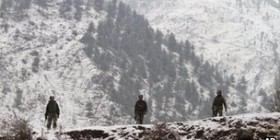Keeping the lid on the Brooks report will only harm the Indian Army’s credibility
Following the humiliating defeat in the 1962 Sino-Indian War, the Army HQ set up an operational review to inquire into the reverses at the corps HQ and below. This task was given to Lt Gen Henderson Brooks, assisted by Brig PS Bhagat, in December 1962. Sources say the inquiry also reviewed the events leading to the debacle and the politico-military relations before the war. The report was submitted in April 1963.
On 2 September 1963, purportedly after reviewing the report, the then defence minister YB Chavan castigated the army in Parliament and surmised that the loss was due to poor military leadership and high-level “interference” in tactical operations. Other reasons listed were the troops’ unpreparedness for mountain warfare and unfamiliarity with Chinese tactics, equipment shortages, inadequate intelligence, the unexpectedness of the Chinese assault and the Chinese numerical superiority.
It is ironic that Chavan failed to recognise the heroic battles fought in the Walong and Chusul Sectors. C Company of the 13 Kumaon bravely led by Major Shaitan Singh fought an epic battle at Razangla before being overwhelmed. 114 of the 123 soldiers, including the company commander, were killed. The battle has no parallel in the annals of military history.
In April 2010, the then defence minister AK Antony told Parliament that the report could not be declassified because its contents “are not only extremely sensitive but are of current operational value”. During the elections, Arun Jaitley blogged that public interest demands this document should be made accessible.
But having become the defence minister, Jaitley repeated what Antony had said earlier. Some observers opine that this U-turn was perhaps based on the advice rendered by the army establishment, which does not want the report to be declassified. The reasons for this are not known.
The main cause of the defeat was Nehru’s belief in “unshakeable friendship” between India and China despite indications to the contrary. When Gen KM Cariappa brought to his notice in 1951 that some Chinese troops were apprehended with maps showing some parts of North-East Frontier Agency as part of China, he retorted, “It is not for the army to decide who the nation’s likely enemies would be.”
In his resignation letter to Nehru, Gen KS Thimayya wrote, “With the present state of the army, I can hardly assure success. We are not prepared. All my efforts have failed for the past 24-30 months to make the army a viable defence force. So, let someone else do the job.” Nehru persuaded him to stay, but nothing was done about his recommendations.
To assess the Chinese threat, Lt Gen SPP Thorat held an exercise in Lucknow in March 1960. It made clear that with the troops, weapons and equipment available then, a Chinese attack could not be contained or repulsed. When the report was sent to the defence ministry, VK Krishna Menon called Thorat a warmonger, and never sent the report to Nehru. On the contrary, during a discussion on the ‘Forward Policy’ in a meeting at the PMO, intelligence czar BM Mullick opined that the Chinese would not react to this stratagem and his views were unequivocally accepted.
In 1962, the loss could have been averted if the advice of Gen Thimayya and Lt Gen Thorat was heeded and air power used. In May 1961, when Gen Thimayya retired, Thorat, who was a more competent officer, was not appointed as the chief. Instead PN Thapar was appointed as the army chief and Kaul as Chief of the General Staff. Both were more pliant and backed the ‘Forward Policy’. After the 1962 debacle, Menon, Thapar and Kaul had to resign in ignominy.
The defence minister should stand by his conviction and declassify the report to restore the government’s credibility and assure the nation that we are fully geared to face any threat from the northern border.






Leave a reply